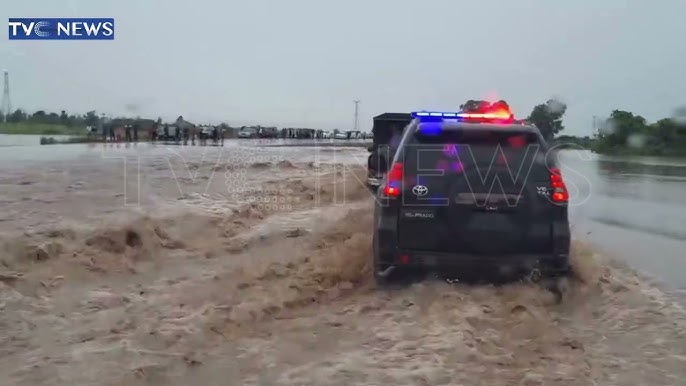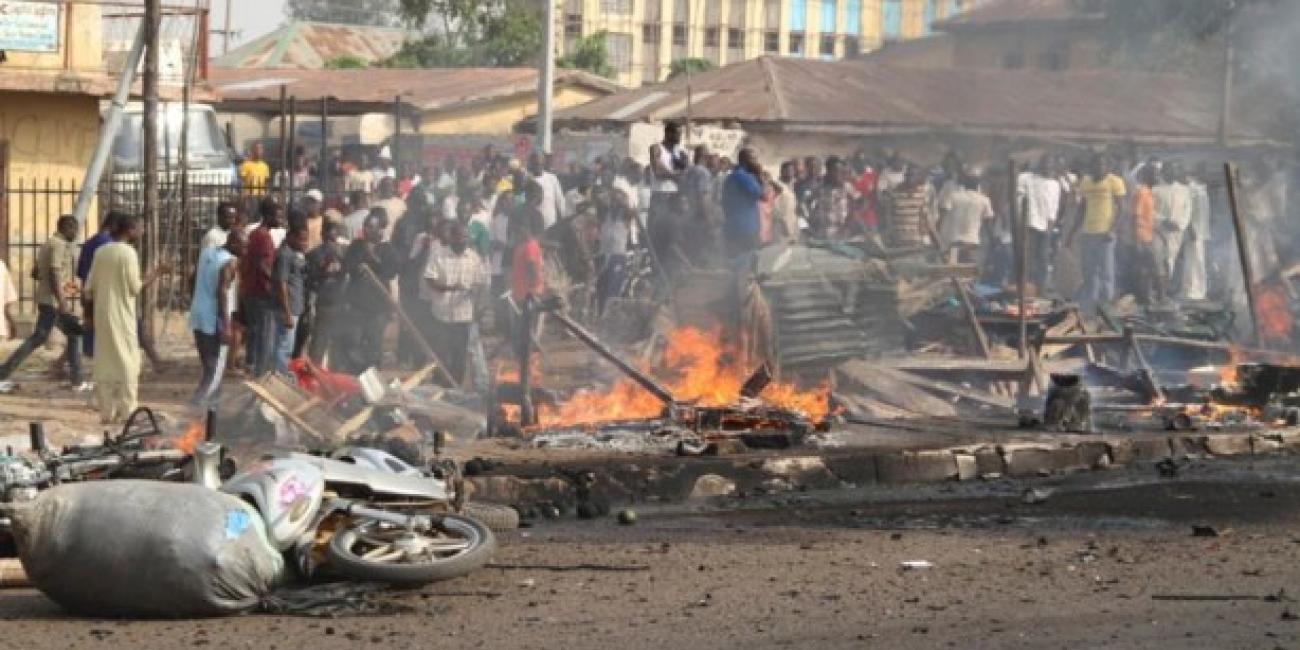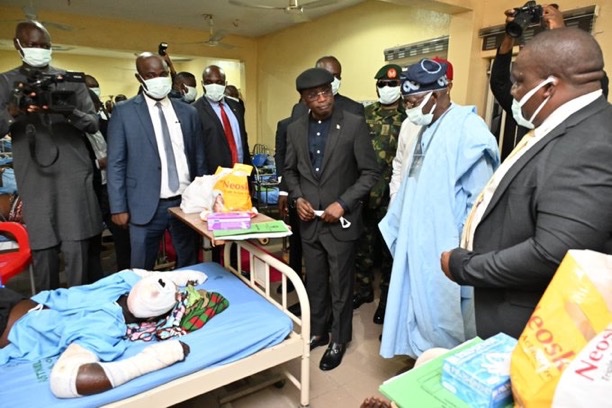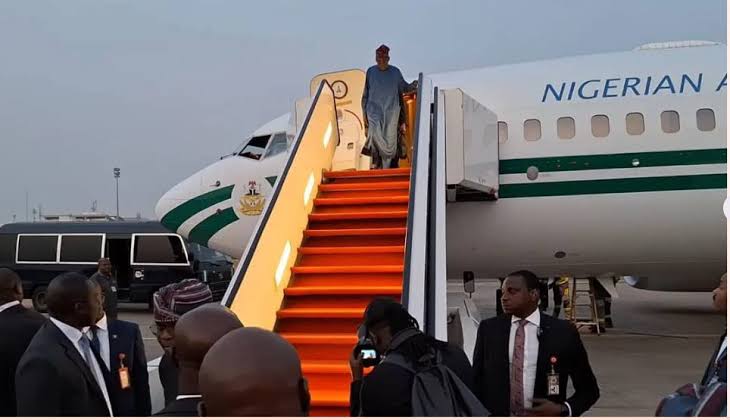President Bola Tinubu’s condolence visit to Benue State was significantly disrupted by severe flooding along the Lafia-Makurdi Road, a critical highway connecting Nasarawa and Benue states. Torrential rains caused floodwaters to submerge large sections of the road, rendering it impassable for hours and stranding commuters, including the president’s advance security convoy. A video aired by Television Continental (TVC) captured the convoy halted by the deluge, highlighting the severity of the flooding and its impact on travel.
The flooding stemmed from heavy rainfall that overwhelmed drainage systems along the Lafia-Makurdi Road, a vital artery for regional transportation. Commuters were forced to delay their journeys or seek temporary shelter, while local authorities struggled to manage the crisis. The disruption underscored ongoing challenges with infrastructure resilience in Nigeria, particularly during the rainy season, when poorly maintained roads and inadequate drainage systems frequently exacerbate flooding.
Despite the roadblock, President Tinubu arrived in Makurdi, the Benue State capital, at approximately 12:58 p.m. via the Nigerian Air Force Tactical Air Command Base. His visit was prompted by a recent massacre in Yelewata, Guma Local Government Area, where suspected armed herdsmen killed over 200 people, displacing thousands and deepening communal tensions. The president’s itinerary included offering condolences to grieving families and engaging with displaced persons to assess their immediate needs.
Upon arrival, Tinubu was received by Benue State Governor Hyacinth Alia, alongside other top government officials and traditional leaders. The state government had declared June 18 a public holiday to honor the president’s visit, urging residents to participate in a ceremonial procession to demonstrate solidarity. The gesture reflected the significance of the visit amid heightened security concerns and the urgent need for federal intervention in the region.
At the Government House in Makurdi, Tinubu convened a town hall meeting with key stakeholders, including community leaders, security officials, and representatives of affected communities. The discussions focused on strategies to restore peace, prevent further violence, and address the root causes of communal clashes in Benue State. Tinubu emphasized the federal government’s commitment to supporting displaced persons and rebuilding affected areas, promising to deploy additional resources to enhance security.
The Yelewata massacre, one of the deadliest attacks in Benue State in recent years, has reignited debates over Nigeria’s security challenges, particularly in the Middle Belt region. Suspected herdsmen attacks have long plagued Benue, with recurring violence between farmers and herders over land use and resources. The scale of the recent killings prompted widespread outrage, with local leaders calling for urgent action to protect vulnerable communities.
Tinubu’s visit also highlighted the broader issue of infrastructure decay in Nigeria, as the flooding on the Lafia-Makurdi Road exposed vulnerabilities in the nation’s transportation network. Local residents and analysts noted that the lack of regular maintenance and poor urban planning have worsened the impact of seasonal floods. Calls for federal and state governments to invest in climate-resilient infrastructure have grown louder in the wake of the incident.
The president’s engagement with Benue’s residents extended beyond the town hall, as he visited displacement camps to interact directly with survivors of the Yelewata attack. Many displaced persons voiced concerns about inadequate shelter, food shortages, and the lack of long-term solutions to the herder-farmer conflict. Tinubu assured them of ongoing humanitarian aid and pledged to work with state authorities to implement sustainable peace initiatives.
The flooding incident also disrupted local commerce, with traders along the Lafia-Makurdi Road reporting significant losses due to halted traffic. Farmers, who rely on the route to transport goods to markets in Makurdi and beyond, faced delays that threatened the spoilage of perishable produce. The economic ripple effects underscored the broader implications of infrastructure challenges in the region.
Governor Alia, in his remarks, thanked President Tinubu for his visit and reiterated the state’s commitment to collaborating with the federal government to address both security and infrastructure issues. He highlighted ongoing efforts to provide relief to flood-affected communities and appealed for federal support to rehabilitate critical roads like the Lafia-Makurdi highway. The governor also called for stronger measures to curb armed violence and ensure justice for victims of the Yelewata attack.




